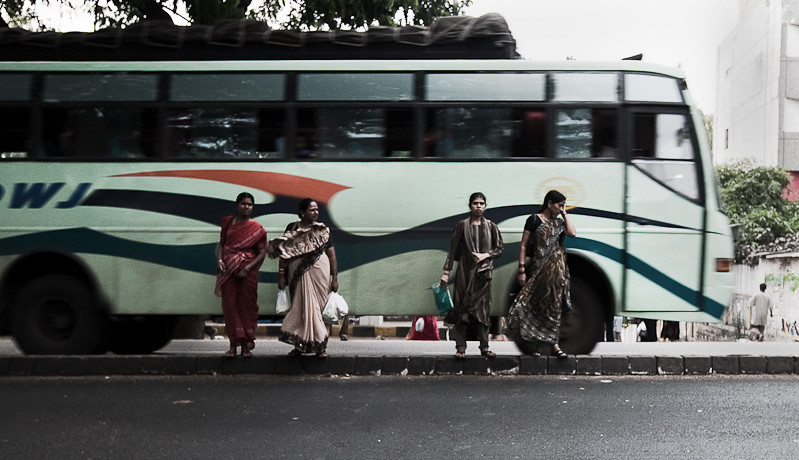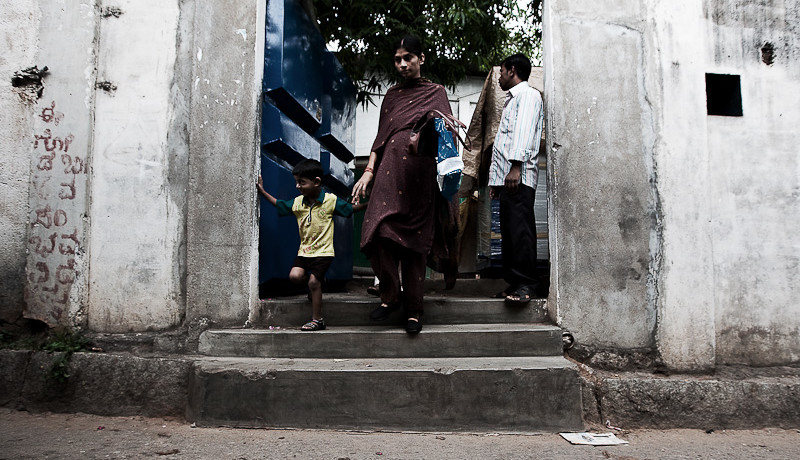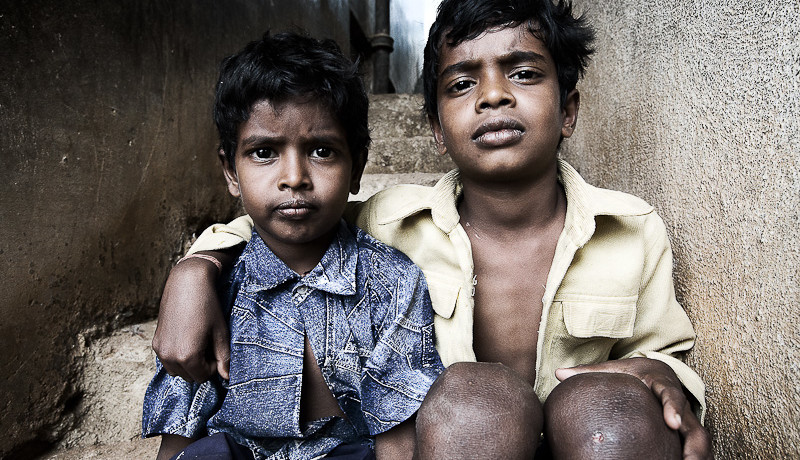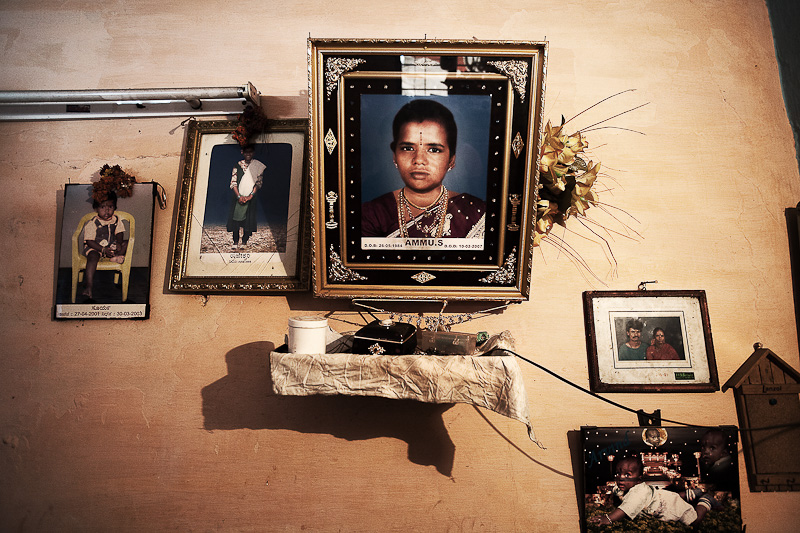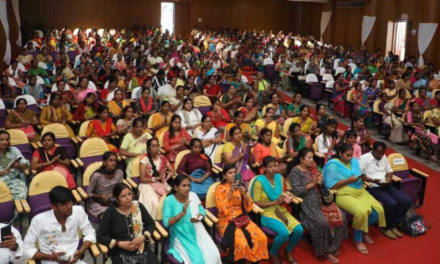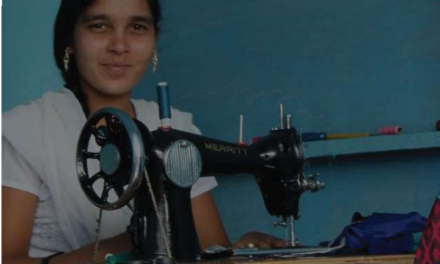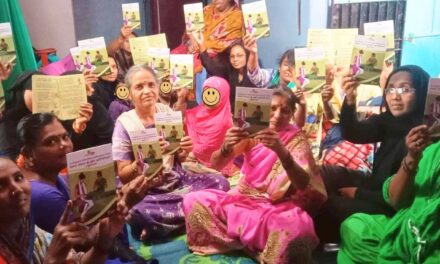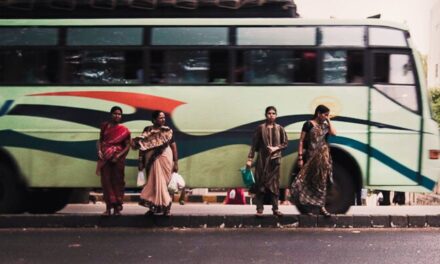Although western consumers have put pressure on clothing manufacturers to improve health and safety within their factories, treatment of the workers still remains a major concern.
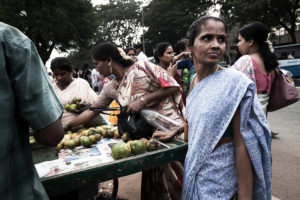
This series features women who’ve lost children, been subject to terrible sexual harassment, and also children who have been orphaned due to such harassment.
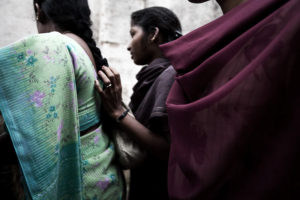
Most of the women working in these factories are married. When they finish their shifts they must return home to carry out their chores as wives and mothers.
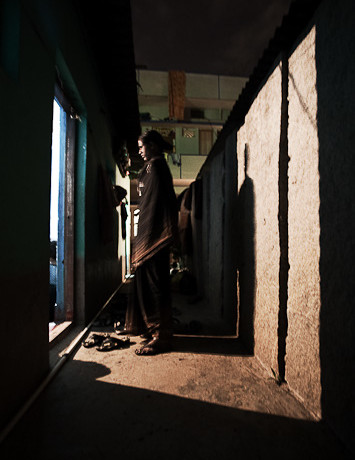
The garment workers are starting to form unions in order to represent their own interests. These are quickly growing in popularity and most meet at night after their long shifts in the factories.
This heavily pregnant woman with a young child has just finished her shift at a garment factory.
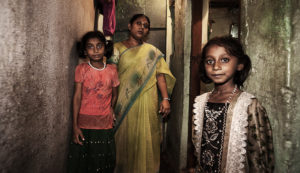
This woman went into labour on the production line. Her floor manager would not let her leave the factory until she had met her quota for the day. She was eventually allowed to go but was simply left in the lane outside of the factory. There she gave birth to her child. After dragging herself to the nearest road she managed to hail a rickshaw driver to take her to hospital. Her child had died outside of the factory. No compensation was paid.
These young boys were orphaned when their mother committed suicide on a factory production line.
She faced such severe sexual harassment from her manager that she hung herself. The boys now live with their grandmother. They did receive a small amount of compensation and the manager was sacked from his job.
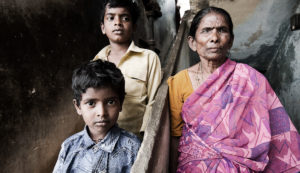
Photographs by Mike Byrne

